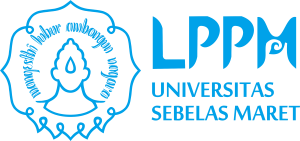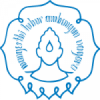By: M. Sri Samiati Tarjana, Joko Nurkamto, dan Dewi Rochsantiningsih
The objectives of the multi-year research are to develop a learning model and learning material to develop the cross-cultural competence of foreign students (FS) in the area of Surakarta Regency. Based on the objectives, the research takes the Research and Development Model, aiming at developing a model, namely ”a learning model and learning material to develop cross cultural competence of the FS”. The Research design has three stages, namely: (1) exploration stage, (2) developing model at a limited scope and (3) developing model at a wider scope.
The exploration stage was carried out in various universities in the area of Surakarta and its vicinity during the first year (2008). The objectives are (1) to identify the cross cultural communicative competence of FS who are learning in universities in various areas in Surakarta Regency and its vicinity, (2) to identify the cultural and social factors FC-s face in the area, which made them feel secure and/or not secure, (3) to design a cross cultural syllabus based on the needs assessment and (4) to develop a cross cultural learning material in Surakarta Regency and its vicinity. Field observation shows that at present learning material for cross cultural understanding (CCU) is not available yet, as it is usually attached to the learning material of Bahasa Indonesia for FS. The products of the research include a syllabus, a learning material in line with the domains in the daily life of the local society. The teaching-learning model is designed based on in-class and out-of class, usually called outbound activities.
The research carried out in 2010 is a stage for developing models at a limited scope. The objectives are (1) to try out and develop the learning material, and (2) to develop a feasible teaching-learning model for developing the CCU of FS. Both were carried out at a limited scope, namely in UNS. The sources of data were the FS-s studying in UNS, and various realia for improving their cultural competences. The technique for collecting data was carried out through passive participation observation, questionnaire distribution, in-depth interview and documentary analysis. In order to obtain valid and reliable results, the technique of analysis was carried out by means of constant comparative method (Strauss and Corbin, 1990) which consists of four steps, namely: to determine the information units, to categorize the information based on the similarity of information, to identify the relation between information categories, and to develop the theory based on the types of relations of the information categories.
The CCU development training at this stage was generally speaking carried out at the Language Laboratory of UNS UPT. Language Development and Services (UPT P2B UNS), supported by outbound activities. The latter were study visits to various cultural centers in Surakarta and its vicinity. The development of the learning model was based on the learning material, and involved active participations of both the teachers and students. The learning scenario includes:
introducing cultural setting and phenomena, understanding culture, building culture knowledge, exploring culture and closing. The activities enabled FS to directly know and understand the local culture, then made comparison and reflections between the local culture and those of their own. The research indicated that a teacher handbook needs to be prepared to support the teachinglearning activities.
The results of the research show that in general there is varied levels of FS cross cultural competencies, depending on their countries of origin. Those FS-s from Asia usually have relatively acceptable competency, since their cultures are near to that of the local culture. This is among others in aspects of: male and female pattern relation, respect to the elder or higher status, patterns of behavior in non-verbal and in community behavior, like in physical, facial and gesture languages. Differences, however, are also available. On the other hand, FS-s coming from outer-Asian regions usually have minimum competencies in the local culture. They experienced more culture shock. FS-s who intend to live and stay in Indonesia commonly made pre-departure training relevant to the Indonesian language and culture. The culture shock usually experienced by FS-s deals with concepts of different gender relations, privacy, food, hygiene standard, public services, time discipline and queuing manner. Culture shock seems also related to the learners’ personality, whether they are introverts or extroverts.
Those who have a more opened attitude do not really bother with the culture differences, while those who are more closed often regard the differences as a significant problem. The latter takes more time to overcome the culture shock. Another significant problem deals with different politeness principles applied in the Eastern cultures, particularly in expressing indirect speech-acts to respect the other person. Whereas in the West, they are more direct and open. This seems to be a significant problem in understanding the cultural phenomena. Some FS-s, however, feel they prefer the local culture in Indonesia, since they feel they get more attention and feel respected, and are able to stop public transportation services at any location conveniently. In terms of language ability, it seems that the FS-s have varied abilities in bahasa Indonesia. There are those who know almost no bahasa Indonesia, those with minimum ability in the language, and also those who are very good in bahasa Indonesia. They indicate the need for adequate language training on the FS-s arrivals.
Even though there are some constraints as mentioned above, it seems that the teaching-learning activities in the training program is able to develop the cultural competencies of the FS-s as they develop from the etic into the emic perspectives (Fantini, 1995). In general the FS-s stated that they are satisfied with the activities and that the training is beneficial. They are able to develop their attitude and behavior conveniently relevant to the Indonesian/Javanese cultural phenomena when they interact with the local people.
The results of the research indicate that there is need for the research to be continued at the third year in 2011, in a wider setting. This will cover efforts for further developing the learning material, developing the Teacher Book, and developing the interactive learning model. It is expected that the results will be useful for supporting the bridging program for in-coming FS-s who are studying in Indonesia, particularly in Surakarta and its vicinity

